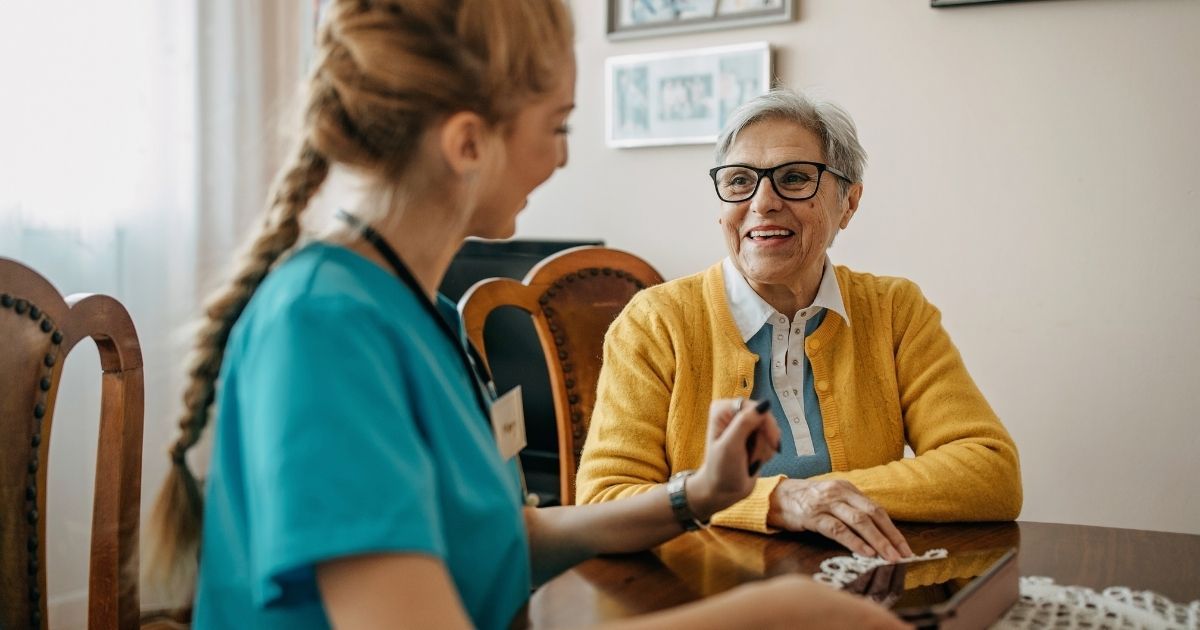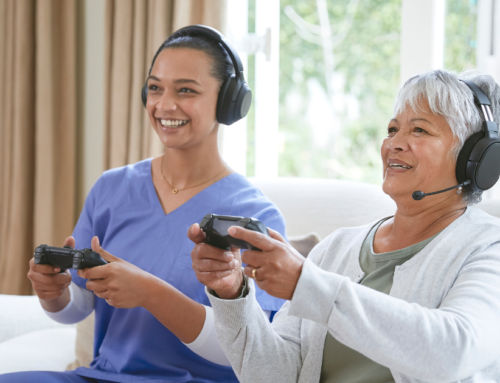It can be challenging to remain objective as an aging loved one starts exhibiting signs that they may have reached the point where it’s time to bring in a caregiver to help. Your loved one wants to remain at home, the place they’re most comfortable, and utilizing home care can allow that to happen.
At Home Instead of Southwest Florida, we’ve helped many seniors in Naples, Florida and the surrounding area transition from being primarily independent to accepting and enjoying the company and assistance of a professional in-home caregiver.
To help you decide if it’s time for home care for your loved one, here are ten questions you should be asking:
1. Are everyday tasks becoming more difficult?
Arthritis, mobility problems, or poor eyesight can make it hard for some seniors to perform tasks they’ve performed comfortably for years, like chopping vegetables, folding laundry, or keeping their living space clean.
2. Are they at a higher risk of falls or accidents?
Medication, illness, and loss of muscle mass can reduce coordination and steadiness as we age. Simple things like going up and down stairs, changing a light bulb, or cleaning a slippery tub can all become dangerous tasks.
3. Do they want to age in place with a partner who needs help?
It can be a complicated situation if one spouse is still independent but can’t care for the changing needs of their partner. Home caregivers make aging in place possible for both.
4. Is forgetfulness becoming a problem?
Forgetting the names of old friends or where they put their phone is a normal part of the aging process. But if memory problems have progressed to the point where they’re missing taking medication, making doctor’s appointments, not paying bills, etc., it may be time to speak with a home care agency.
5. Is it becoming more unsafe for them to move around the home?
Difficulty walking and moving can make performing household tasks difficult, especially in homes with stairs. Declining mobility can also make it hard for a senior to drive safely. Professional caregivers can get a senior where they need to go safely and provide assistance throughout the home.
6. Is their appearance changing?
If they’re losing weight, it can be a sign they’re having difficulty cooking, have lost their appetite because of a loss of smell or taste, or may have other undiagnosed conditions.
Appearance-related warning signs include infrequent bathing, the persistent smell of urine or body odor, unruly facial hair, or unkempt clothing.
7. Do they seem despondent, lonely, or quieter?
Many factors lead seniors to loneliness. The loss of friends, geographically distant family members, or the inability to drive are just a few. Caregivers can provide companionship and transportation for aging adults who are feeling isolated and alone.
8. Are they having difficulty staying engaged in day-to-day life?
Having the same routine day after day can lead to low levels of stimulation, which can increase depression and cognitive decline rates. An in-home caregiver can help your loved one break out of a tiresome routine with new conversations, food, games, and more.
9. Is your loved one struggling to partake in their favorite activities and interests?
Physical decline is a natural part of the aging process. It can prevent seniors from enjoying activities that gave them great pleasure and kept them active, like cooking, doing hair and makeup, gardening, etc. Caregivers can be there with a senior to lend a hand, allowing older adults to stay active and enjoy their favorite pastimes and hobbies.
10. Does a family caregiver need a break?
Caregiver burnout takes a serious toll on a caregiver’s physical and mental health. Respite care can give family caregivers time to take care of their own needs, whether for a few hours per day or a few days per week.
Think It’s Time For Home Care? Let Home Instead of Naples Help!
Hopefully, these ten questions have helped you evaluate your situation and decide if it’s time for home care. Home Instead of Naples provides home care in the Naples, FL area as well as Fort Myers, and Charlotte County. Call us today at (239) 219-0891. We’ll make the transition to having a caregiver comfortable for your loved one.




